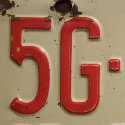
Also in today's EMEA regional roundup: Nokia supplies 400GE kit to Italy's TOP-IX; TIM connects cars in Turin; T-Systems validates vaccination certificates.
Belgium's Telenet is launching 5G services, with the first switch-on next week in Leuven, Antwerp and the coast. For the initial rollout, Telenet is using the provisional spectrum license granted by the Belgian Institute for Postal Services and Telecommunications (BIPT) last year. The spectrum is granted at 3.6GHz and 3.8GHz. During 2022, coverage will be expanded to the major Flemish cities and along the country's motorways. By 2025, the operator says, the entire mobile network of Telenet and its subsidiary BASE should be equipped with 5G. The operator is working with Nokia and Ericsson on upgrading its towers for the rollout.
Nokia is supplying its 400GE IP routing platforms to TOP-IX, an Italian Internet exchange provider, to help it scale up its regional interconnection and peering infrastructure. According to the Finnish vendor, the move will allow TOP-IX to introduce more network automation and improve "time to market" for its customers.
Telecom Italia's edge cloud technology will be providing some of the connectivity today for a live trial of connected-car technology in Turin. The trial is one of a series planned to take place over the next few years in a project led by the 5G Automotive Association. For full details of what's actually being tested today, see this acronym-heavy press release.
Deutsche Telekom's IT arm, T-Systems, has developed a Corona Validation Service that allows COVID-19 digital health certificates, which provide proof of vaccination, to be more easily checked by the likes of operatives in the events industry. The service dovetails with the Corona Warn App (CWA), which was developed jointly by Deutsche Telekom and SAP and has been downloaded more than 37 million times.
Virgin Media O2 says it has connected its entire Scottish cable network – that's 1.2 million homes all told – to gigabit broadband, and all without anyone wielding a shovel. In tandem it says it has also been upgrading its 4G network to "almost 3,000 postcodes" since the start of the year.
Telefónica has been burnishing its green credentials by planting 15 hectares' worth of trees close to the Castilian village of Fresno del Rio in Spain. The mini-forest, reckons the operator, will absorb 3,000 tons of carbon dioxide in its lifecycle, and forms part of Telefónica's wider goal of reaching zero net emissions by 2025. A note for tree buffs: Pine, poplar, holm oak, Pyrenean oak, ash and rowan were among the species planted. Figure 1:
 Trunk call: Telefónica is planting 12,500 trees close to the village of Fresno del Rio.
Trunk call: Telefónica is planting 12,500 trees close to the village of Fresno del Rio.
(Source: Telefónica)— Paul Rainford, Assistant Editor, Europe, Light Reading
Read more about:
EuropeAbout the Author(s)
You May Also Like












